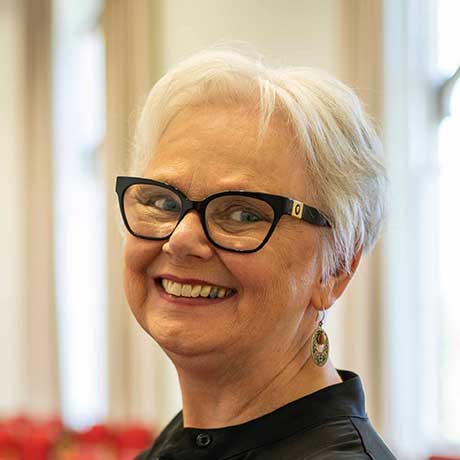- Prospective Applicants
-
Current PhD Researchers
- Careers and Opportunities
- Careers
- Go Global
- Science Shop
-
Supervisors
- Find a PhD
- PhD Manager
Across the developed world, social-work and nursing professions are experiencing high levels of vacancies, staff turnover, ageing workforce profiles and increasing use of agency (temporary) staff. Thus, a fluid, transitional workforce with precarious job arrangements is becoming a workplace cultural norm (Ryan et al 2017, McFadden et al 2019). The conditions for this ‘new norm’ to thrive are primarily related to skill shortages and vacancy levels, but also include levels of sickness and absence, presenteeism and resignations (Javalier, 2018).
The Chartered Institute of Personnel Development’s Absence Report for the public sector highlights an increase in absence associated with stress, with stress being the main reported cause of long-term absence and the second highest cause of short-term absence (CIPD, 2016). The link between workload pressures and organisational factors as stressors is also cited as a ‘main cause together with rapid organizational change’ (CIPD, 2016, p. 2). Furthermore, the Department of Work and Pensions (DWP, 2017) reports that employees from health-related professions and social-work are leaving work early on health grounds, with 24 percent of female and 21 percent of male employees retired early on health grounds.
This project aims to initially conduct a systematic literature review on three areas.
(1) Available knowledge about the global prevalence of transience in these professions due to absence, vacancies and job exit.
(2) Examine available literature on the impact of turnover on service user and carer experiences, and
(3) examine studies that report on the impact of turnover on worker mental health and wellbeing, relating to both ‘leavers, stayers and agency staff’.
Secondly, we will take a co-production approach to develop interview questions based on three focus groups or interviews with service users and carers, social work, and nursing professionals. This will enable each perspective to develop the key or best questions to ask a larger sample about service user/carer and employee experience of being the recipient or provider of nursing or social work service interventions within this context. Using ‘best questions’, interview schedules will be developed for one-to-one semi-structured interviews with a purposive sample of social workers and community nurses (leavers-permanent / leavers-agency and stayers) (n=36) and service -users and carers (health and social work users) (n=18). Data will be transcribed and coded using Nvivo-12 to identify dominant themes from interviews.
We willl build a realist theory (context mechanisms and outcomes) on workforce transience/vacancies and impact on worker and service user experience and well-being. We will build on previous literature and make use of focus group data, which will help shape subsequent data collection (semi-structured interviews) and analysis. SHSCT is willing to engage in this research study as a HSC employer.
This application builds on work by McFadden and Gillen (UK Survey of Ageing Social Workers (n=1.4k), UK Survey of Ageing Nurses and Midwives in context of PfG Extending Working Lives policy. It builds on methodological expertise on co-production strategies and mental health research (McCauley) and is supported by Prof Manthorpe, Director of the NIHR Policy Research Unit on Health and Social Care Workforce.
Essential:
A minimum of a 2:1 first degree in a relevant discipline/subject from a UK institution (or overseas award deemed to be equivalent via UK NARIC); and desirable: A Masters’ degree in a relevant subject, or equivalent professional experience.
Applicants should hold, or expect to obtain, a First or Upper Second Class Honours Degree in a subject relevant to the proposed area of study.
We may also consider applications from those who hold equivalent qualifications, for example, a Lower Second Class Honours Degree plus a Master’s Degree with Distinction.
In exceptional circumstances, the University may consider a portfolio of evidence from applicants who have appropriate professional experience which is equivalent to the learning outcomes of an Honours degree in lieu of academic qualifications.
The University offers the following levels of support:
The following scholarship options are available to applicants worldwide:
These scholarships will cover full-time PhD tuition fees for three years (subject to satisfactory academic performance) and will provide a £900 per annum research training support grant (RTSG) to help support the PhD researcher.
Applicants who already hold a doctoral degree or who have been registered on a programme of research leading to the award of a doctoral degree on a full-time basis for more than one year (or part-time equivalent) are NOT eligible to apply for an award.
Please note: you will automatically be entered into the competition for the Full Award, unless you state otherwise in your application.
The scholarship will cover tuition fees at the Home rate and a maintenance allowance of £19,000 (tbc) per annum for three years (subject to satisfactory academic performance).
This scholarship also comes with £900 per annum for three years as a research training support grant (RTSG) allocation to help support the PhD researcher.
Due consideration should be given to financing your studies. Further information on cost of living
Submission deadline
Friday 7 February 2020
12:00AM
Interview Date
23 and 24 March 2020
Preferred student start date
mid September 2020

Telephone
Contact by phone
Email
Contact by email